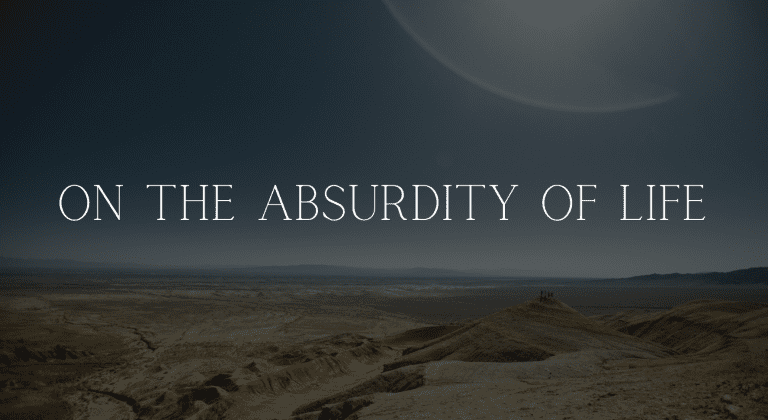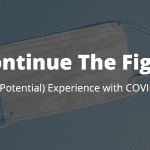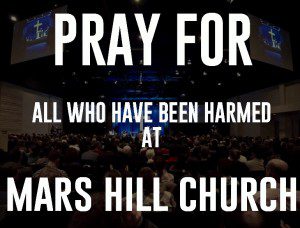The meaning of life is perhaps the most important question that a human can contemplate- actually, it is the only question. Everything we do from the moment of birth onwards is an attempt to answer that question, whether consciously or not. Those who do not spend much time consciously reflecting on the question have a sort of luxury- to just be able to wake up, go about our work, come home to our loved ones, and sleep sweetly at night in endless repetition is in many ways a great blessing.
For those of us who can’t help but contemplate that which is truly unknowable- again, the meaning of life- we are plagued with a great sense of anxiety because we are constantly shooting our unskillfully aimed arrows at a target which either does not exist or that we cannot see. Every time we pull back the bow and shoot our arrow, there is a sense of hope that maybe, just maybe, we will hit the target. But soon after that hope fades into either despair or motivation to try again. And so, we pick up another arrow and begin to shoot. This too is an endless rhythm of life.
Since humans have been conscious, we have been asking this question. We gaze up into the eternal night sky and wonder how we ended up here, on a giant ball of dirt and fire, floating in endless nothingness. It doesn’t seem that we had any say in the matter- we simply appeared. And it doesn’t seem that we have any say on how we shall leave or where we shall go- it will simply happen. Is there another realm to our existence? Perhaps. Does life simply end, and we pass into utter nothingness once again? That seems likely, as well. Despite all of the answers given by philosophy and religion, we obviously know that no one knows. And if there is a God, it certainly seems that they don’t want us to know, either.
Thus, we are faced with a series of choices: shall we continue to live in our endless rhythm, simply ignoring and suppressing these thoughts of meaning and purpose when they arrive? Should we continue to seek and perhaps someday we may be the one to break through and discover the answer at last? (It seems to me that many choose this path, the hubris of which is stunning.) Should we seek a swift end to our existence, recognizing the absurdity of it all? (Camus suggested that suicide is a very logical option, philosophically.) Or should we choose to live in rebellion against the eternal absurdity- choose to grasp a hold of our finitude, knowing that we can never know, and thus seeking to enjoy our time in this most peculiar state?
I of course am not presenting new questions here- these too have been asked by many a philosopher and theologian. And a reader may be quite surprised to see that I, a Christian pastor, am proposing these as the only options. Surely, I must believe that there is a God who has given intrinsic meaning to this all, and that there is a life after death, right? I can accept a claim like that on faith. But again, I do not know. Nor do you. Nor did the Apostle Paul. Nor did Jesus himself. (he regularly and intentionally showed his lack of knowing – which is why there is faith.)
I am a Christian, that is true. I have spent my life studying and seeking to follow Jesus of Nazareth. And in my reading of Jesus, in the context of first century Judaism, I believe that he would have said like most other Jews of his time that he had no knowledge of what happens after death, but trusted that there was a God who did create all that is, and therefore, could live with a sense of peace trusting in that reality, seeking to live a life of abundance, and seeking to help others do the same. This, I believe, is an act of rebellion against the absurd.
Whether or not there is a God is irrelevant. If one lives in relation to a God that does exist, that may bring some comfort in this life, but it does nothing to rid us of the absurdity of our existence. We are still finite, God is infinite. We cannot access the mind of God nor can we know almost anything about God with any degree of certainty. Again, this is where faith comes to play. Faith is a hypothesis, a leap into the unknown, a hope for something that we cannot prove. We may have hunches or evidence or even perhaps limited revelation- but we can know very little about the eternal with our finite capacities. Thus, being a Christian and being an atheist are not all that different- we both, if we’re honest, stand with the same wide-eyed wonder and terror when we contemplate the bigness of it all.
Being a Christian should, however, lead us easier into a beautiful rebellion. When one studies the life of Jesus, we find a man who sought to live simply, to be sure, but also to live a deeply pleasurable life. So often we find Jesus at parties, reclining at dinner tables with friends, breaking religious rules because he was hungry, taking a nap in the middle of a storm, and choosing to stop preaching when he felt tired or overwhelmed by the crowd size and disappeared into evening to rest. Jesus is not some spiritual ascetic who spent every waking hour of his day praying or performing miracles. No, much of his life and ministry, in fact, most of it, seem to have been dedicated to enjoying life. One doesn’t get the sense that when he is murdered (absurdly) at age 33 that he lived only half a life- no, he lived fully.
Jesus showed in his living what truly brought joy- friendships, good food and drink, the ability to “consider the lilies” and appreciate beauty. He enjoyed philosophical musings, but more often than not, he engaged playfully in these conversations, seeking to poke holes in the beliefs and arguments of those who were most certain that they had figured out the truth. One should see Jesus as an epicurean of sorts- a trickster, a man well acquainted with belly laughs as much as he was acquainted with grief. He was a man who lived in rebellion to the systems and structures that tried to force meaning and order onto his life. He chose to live fully and authentically, even as others tried to stop him.
But Jesus also showed another crucial aspect of rebellion – he realized that living for his own pleasure alone was not all that it would take to get a taste of joy. He knew that he must help others find enjoyment as well, which meant that he often turned over tables of those trying to take advantage of others, he spoke truth to the powers of his day, he rebuked evil doers, and called out all those who were greedy or exploitative. If you think about it, all of the “evil doers” of the Gospels were those who were certain they had figured out the meaning of life. It was those who found answers and formed systems around those answers to subject others to their power and force them to conform. But Jesus showed that certainty and greed are quick paths to destruction – we see this best illustrated in Judas who sold Jesus to the empire for a few pieces of silver- and realized that the pursuit of wealth and alignment with power was ultimately empty. Thus, Judas hangs himself, unable to cope with the absurdity of his actions and of ultimate meaninglessness.
Jesus’ death is one of the most absurd images in all of human history- a man who sought nothing more than to enjoy life and to help others enjoy life as well was seen as a threat to the empire (and indeed, such a rebellion in response to absurdity is a threat to any system that dictates answers) and therefore he his murdered. The texts are clear- Jesus is accused of no actual crime- yet he is brutally murdered on the cross because his abundant life threatened to open the eyes of others to see the truth- that neither the empire nor religious rulers knew or had access to the answer to the question “what is the meaning of life?”
The earliest manuscripts of the Gospel of Mark end with Jesus death. While I do believe in the resurrection and its imagery, I also see a great use having at least one Gospel that ends the story with Jesus death. Because that is ultimately how all of our stories end. None of us know what lies on the other side of death- resurrection is the hope of Christians, and it is certainly not unreasonable to hope for that. But it is a hope. We don’t know. Jesus didn’t know- this is why he cries out “God, why have you forsaken me?” as he dies on the cross. He had staked his hope in God, but when faced with his immanent death, it seemed to him that God was not there.
This is true in so many people’s deaths- The children who die of curable diseases in third world countries who could have received treatment, but pharmaceutical companies greed prevented it. It is true of the genocides that have taken place time and time again throughout history- all of those people faced death and wondered, with a most profound urgency, if there was any God, any reason to hope, or if this was just the absurd ending to an absurd experience called life.
Yet even as such endings are deeply unjust and evil, we must also recognize that many of those lives learned to find joy even in the midst of experiencing such evil. Joy is the rebellion against injustice and absurdity. Those children, sick and feeble, still learned to sing and to play. There are stories of countless innocent people facing unjust death who found ways to create moments, however brief, of transcendent joy even in such cruel circumstances.
Ultimately, we all must humbly return to this truth: We don’t know how we got here. We don’t know what we’re to do here. And we don’t know where we are going. Thus we can either choose to soothe our minds by submitting to systems that dishonestly give us certainty, we can choose to suppress the inner question and put our hand to the plow and just work our way through life, or we can stare bravely into the night sky, endless and eternal, and know that we cannot know, but we do know that we are here now, that pleasure is possible, and thus we will seek to maximize it for ourselves and for everyone else.
If there is no God or no meaning, then this is the most massive middle finger we can give to the void. If there is a God and intrinsic meaning, surely living joyfully and maximizing joy for others is their will for us. Why else would they give us pleasure and beauty and connection? Either way, our power is in our pleasure. It is in the simplicity that comes from knowing that everything that exists and everything we can experience offers us an opportunity for pleasure and deeper connection to each other. When we walk through pain and suffering, we don’t need to try to find meaning to justify it, rather, we are free to mourn it, or potentially correct it, and then to return to what is pleasurable in our lives.
Our time here is short. This may be one of many lives or the only life we get- we can’t know. So, let us heed the wisdom of the writer of Ecclesiastes: “Eat, drink, and be merry, for tomorrow we die.” Or as Albert Camus wrote, “We must imagine Sisyphus happy.” May we likewise imagine ourselves happy in the face of the absurdly magnificent experience called life.












